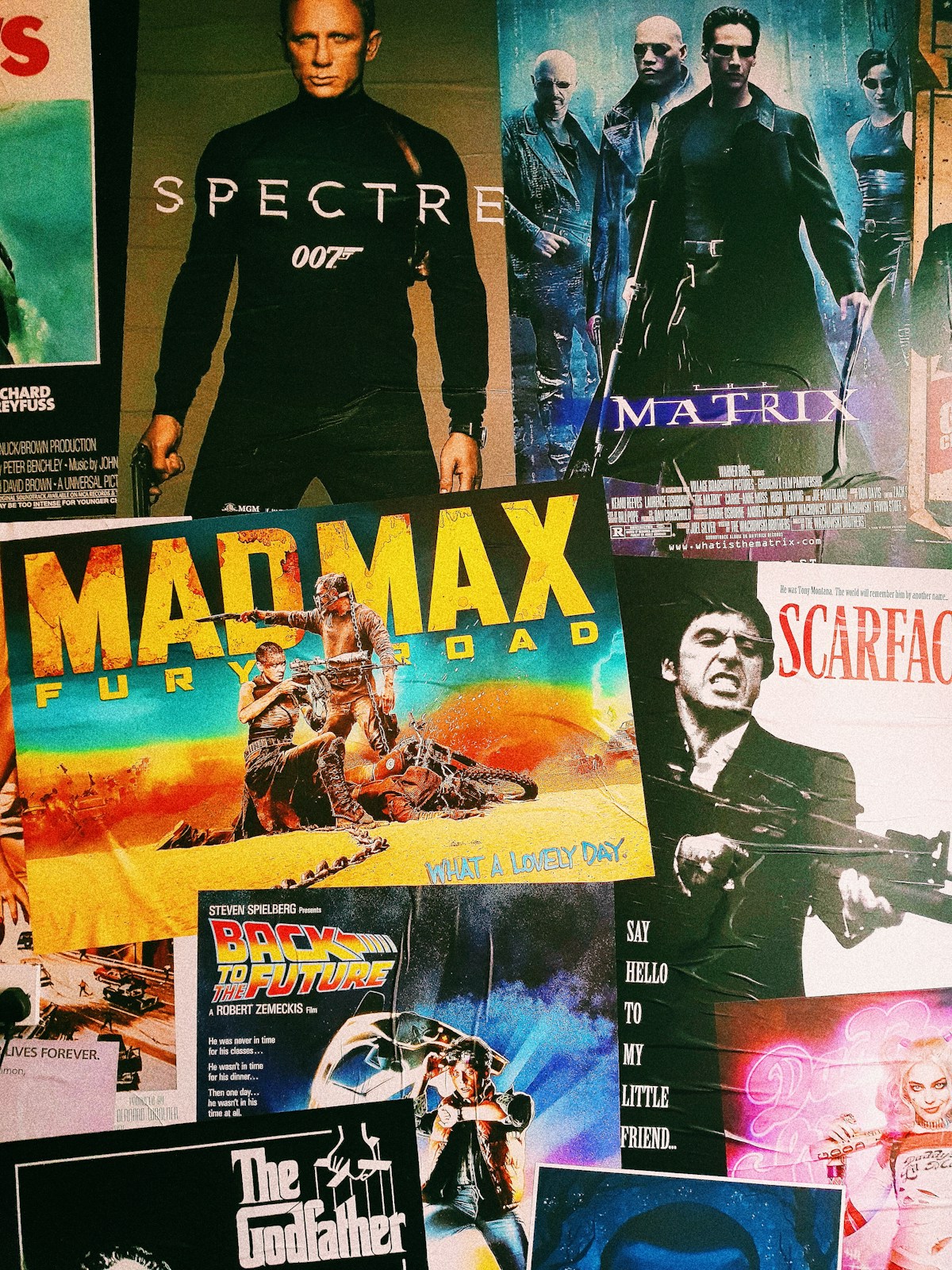Twenty years ago on November 8, 2005, Lionhead Studios released what might be their most ambitious and innovative game. Not Black and White with its god game mechanics and learning AI. Not Fable with its moral choice system and evolving hero. Instead, it was The Movies, a business simulation about running a Hollywood film studio that also doubled as a surprisingly robust filmmaking tool. Two decades later, the game sits abandoned and largely inaccessible, yet it remains one of the most creative simulation games ever made.
More Than Just a Business Sim
The Movies put you in charge of building and managing your own Hollywood studio from the 1920s through the 2000s. You constructed sound stages, hired actors and directors, managed their careers and relationships, and produced films to keep your studio financially afloat. The business management layer worked similarly to The Sims, with your studio lot functioning as a living ecosystem where stars developed egos, directors burned out, and janitors kept everything running behind the scenes.
What separated The Movies from every other management sim was the filmmaking itself. Your in-game script writers and directors would automatically create movies based on the resources available, but you could also take complete creative control. The game included extensive editing tools that let you construct scenes shot by shot, position actors and extras in frame, write or record dialogue, and add music straight from your own PC. You weren’t just pretending to make movies. You were actually making them, and they could be exported as video files to share with others.
Ahead of Its Time
The Movies launched only six months after YouTube went live in February 2005. The modern internet video sharing ecosystem that would make user-generated content explode simply didn’t exist yet. Lionhead created a website called The Movies Online where players could upload their creations, but the infrastructure and cultural moment that would have allowed the game to truly shine arrived too late. Imagine The Movies releasing in 2010 instead, when YouTube was established, social media was booming, and streaming was becoming mainstream.
The game essentially predicted the rise of machinima, the practice of using video game engines to create films. Gary’s Mod would become famous for this a year later in 2006, but The Movies was already there with purpose-built tools for storytelling. One player created The French Democracy, a thirteen-minute political commentary on civil unrest, racism, and identity in France that garnered mainstream media attention across Europe. An unknown creator sparked genuine public discourse using tools inside a video game about managing Hollywood studios.
The YouTube Legacy That Never Was
Looking through YouTube today, you can still find The Movies creations uploaded years ago. Someone made a Dungeons and Dragons film that has half a million views after eighteen years. Others created knock-off James Bond movies, recreated Hitman game scenes, and even produced a shot-for-shot remake of The Dark Knight trailer. These fan films are rough around the edges, limited by the game’s assets and animations, but they demonstrate the creative potential that Lionhead unlocked.
The quirky, almost goofy nature of the game’s animations made serious genres unintentionally comedic. Players trying to create noir detective stories or horror films often ended up with accidental parodies instead. But that became part of the charm. The game had personality, humor, and a willingness to let players experiment even when results didn’t match intentions. Many players simply embraced the comedy and leaned into making deliberately funny content rather than fighting against the game’s natural tone.
Why It Never Got a Sequel
Despite winning Best Simulation Game at the BAFTA Video Games Awards and earning nominations at the Game Developers Choice Awards, The Movies sold poorly. An expansion called Stunts and Effects arrived in 2006, adding new features and assets, but that was it. Lionhead moved on to other projects like Fable 2, which became their only undisputed critical and commercial hit in 2008.
The studio itself struggled with a reputation for over-promising and under-delivering. Peter Molyneux’s ambitious visions for games like Black and White, Fable, and the infamous Project Milo Kinect demo created expectations that reality couldn’t match. Microsoft acquired Lionhead in 2006 and eventually closed the studio in April 2016 after canceling the free-to-play Fable Legends. With Lionhead gone and publishing rights split between multiple companies, The Movies fell into legal and corporate limbo.
The Abandonware Problem
The Movies was available on Steam for years but has since been delisted. There’s no legal way to purchase and play the game today except tracking down a physical disc from 2005, which comes with its own compatibility nightmares on modern operating systems. This makes The Movies one of the most significant abandonware titles in gaming, a creative achievement that has been truly abandoned by everyone who owned a piece of it.
Some former Lionhead developers went on to form Two Point Studios, creating games like Two Point Hospital and Two Point Campus that carry forward the cheeky British humor and accessible management gameplay. However, these games use a cartoony art style that doesn’t match The Movies’ more realistic aesthetic. The magic formula of business simulation plus robust creation tools hasn’t been successfully recreated, leaving a hole in the gaming landscape that’s been empty for twenty years.
Spiritual Successors Fall Short
Attempts have been made to capture what made The Movies special. Blockbuster Inc is probably the most prominent spiritual successor, focusing on movie studio management with some filmmaking elements. But according to fans who’ve tried it, the game doesn’t quite nail the balance that Lionhead achieved. The creation tools feel limited, the business management lacks personality, and the overall experience misses that intangible Lionhead energy.
Part of the problem is that The Movies succeeded by being two excellent games in one package. The business sim needed to be engaging enough to justify the management systems, while the filmmaking tools needed to be powerful enough for actual creative expression without becoming too complicated. Finding that sweet spot between accessibility and depth, between management and creativity, proved extremely difficult. Lionhead nailed it once, and nobody has managed to repeat the trick since.
Community Memories
Reddit discussions about The Movies are filled with nostalgia and genuine affection. Players remember spending hours building perfect studio lots, nurturing star careers from struggling unknowns to prima donnas, and experimenting with the filmmaking tools. Many recall being teenagers when they played, living out fantasies of Hollywood success without any of the real-world complications. The game let them feel like legitimate film directors even though their creations starred blocky 3D characters performing exaggerated animations.
One common thread in these memories is surprise at how polished and feature-complete the game felt. Unlike many ambitious projects that shipped half-broken or missing promised features, The Movies actually delivered on its core concept. You could run a studio, you could make movies, and both halves worked well enough that neither felt like an afterthought. For a Lionhead game, that level of execution was almost shocking given the studio’s reputation for ambitious ideas that didn’t quite land.
Why It Deserves Another Chance
The gaming landscape of 2025 is perfectly positioned for a Movies remake or spiritual successor. Content creation has become mainstream, with millions of people regularly making videos for TikTok, YouTube, and streaming platforms. The infrastructure and audience for user-generated video content that barely existed in 2005 is now ubiquitous. A modern version could integrate directly with social media, include far more assets and genres, and potentially even support modding communities.
Modern technology would also solve many of the original game’s limitations. More realistic character models and animations could enable serious dramatic films rather than just comedy. Voice synthesis and AI could help with dialogue without requiring players to record everything themselves. Cloud rendering could handle the heavy processing required for high-quality exports. The core concept that was ahead of its time twenty years ago would fit perfectly into today’s creator economy culture.
FAQs
When was The Movies released?
The Movies launched on November 8, 2005 in North America and November 11, 2005 in Europe. The game was developed by Lionhead Studios and published by Activision for PC, with a Mac port by Feral Interactive.
Can you still buy The Movies legally?
No, The Movies has been delisted from digital storefronts including Steam. The only way to play legally is finding a physical copy, which can be difficult and expensive. The game is effectively abandonware with no official distribution method.
What made The Movies special?
The Movies combined Hollywood studio management with actual filmmaking tools. You could build studios, manage actors and directors, and produce films. The game also let you take creative control, editing scenes, recording dialogue, and exporting finished movies as video files to share.
Did The Movies get a sequel?
No, only one expansion called Stunts and Effects was released in 2006. Despite critical acclaim and awards, the game sold poorly and never received a sequel. Lionhead Studios was closed by Microsoft in 2016, likely ending any chance of revisiting the franchise.
Who made The Movies?
Lionhead Studios developed The Movies under founder Peter Molyneux. Lead designer Mark Webley recalled that Molyneux suggested the concept in December 2001, and development began in February 2002 with a small team that grew over three years.
What happened to Lionhead Studios?
Microsoft acquired Lionhead in 2006 and closed the studio in April 2016 after canceling their game Fable Legends. Some former employees went on to form Two Point Studios, which creates management sims like Two Point Hospital.
Are there any games like The Movies today?
Blockbuster Inc is the most prominent spiritual successor, but according to fans, it doesn’t quite capture the magic. No game has successfully replicated The Movies’ balance of business simulation and creative filmmaking tools.
What awards did The Movies win?
The Movies won Best Simulation Game at the BAFTA Video Games Awards in 2006. It was also nominated for best game at the Game Developers Choice Awards, though it didn’t win that category.
Conclusion
Twenty years after release, The Movies stands as one of gaming’s great what-ifs. What if it had launched a few years later when YouTube culture was established? What if it had received continued support and sequels to refine the formula? What if someone with the rights actually cared enough to make it available again? These questions highlight how special the game was and how poorly served its legacy has been. The Movies deserved better than becoming abandonware, forgotten by corporations but remembered fondly by players who experienced its unique blend of management and creativity. As gaming continues evolving toward user-generated content and creative expression, the twenty-year-old vision that Lionhead executed so well feels more relevant than ever. Someone needs to bring this concept back, whether as a remake, remaster, or spiritual successor that finally gets the audience and infrastructure that The Movies always deserved. Until then, we’ll keep hoping that somewhere in a boardroom, someone realizes they’re sitting on a gold mine if they’d just dust it off and give it another shot.


